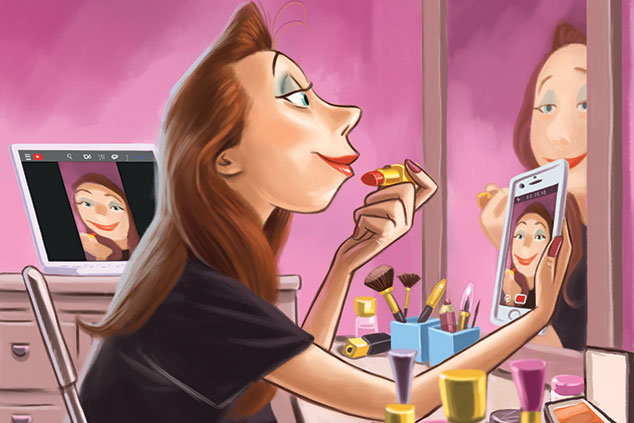
New sales techniques, online influencers and structural trends such as growing consumption in emerging markets all bode well for the beauty industry, says Stephen Connolly.
Investors often wonder where the next “unicorn” – a privately held start-up valued at more than a billion US dollars – could come from. They might expect it to emerge in sectors such as finance, space travel, or cybersecurity, or anywhere companies are radically changing how we do things. They certainly wouldn’t expect it to emerge from a tiny operation in California with just a handful of staff flogging lipstick online at $29 a pop.
But according to US business magazine Forbes, Kylie Cosmetics has been so successful that its valuation has soared from zero to nearly $1bn in the three years since its inception. Founder, 100%-owner and now make-up mogul Kylie Jenner, a scion of the Kardashian-Jenner family featured in the long-running US reality cable TV show Keeping Up With The Kardashians, has become the world’s youngest billionaire at 21, elbowing aside Facebook’s founder Mark Zuckerberg. He didn’t reach the $1bn mark until he was 23.
Making a mint out of make-up
Forbes’s announcement quickly drew criticism from those who put Jenner’s success down to her family’s celebrity status. There’s no doubt this has been key to reaching her market: she now has 129 million followers on the photo-sharing site Instagram, more than musicians Beyoncé, Taylor Swift and Justin Bieber and far more than top-20 global brands such as Nike, Disney and BMW. Powerful though this personal online celebrity following is, however, it alone doesn’t explain why the cosmetics industry has been on such a tear over recent years. She’s not the only one making a mint out of make-up.
Take Pat McGrath. She has less than 2% of the number of Jenner’s Instagram followers yet her start-up, which she launched around the same time as Kylie Cosmetics, hit the $1bn mark even faster. A former receptionist from Northampton, this British success story worked her way up, with no formal training, to become a major name in the international, top-league fashion scene. She has been associated with major labels, including Giorgio Armani, Prada and Dolce & Gabbana, and deemed “the most influential make-up artist in the world” by Vogue’s legendary editor-in-chief Anna Wintour.
Other big names in this field include Anastasia Soare, known as the “eyebrow queen”; her brand is valued at around $3bn, according to the Financial Times. Then there is Jamie Kern Lima, a former Big Brother contestant who sold her It Cosmetics label for $1.2bn to cosmetics powerhouse L’Oréal. Charlotte Tilbury is another British name well on the way to being worth $1bn.
Subscribers can read it in the digital edition or app